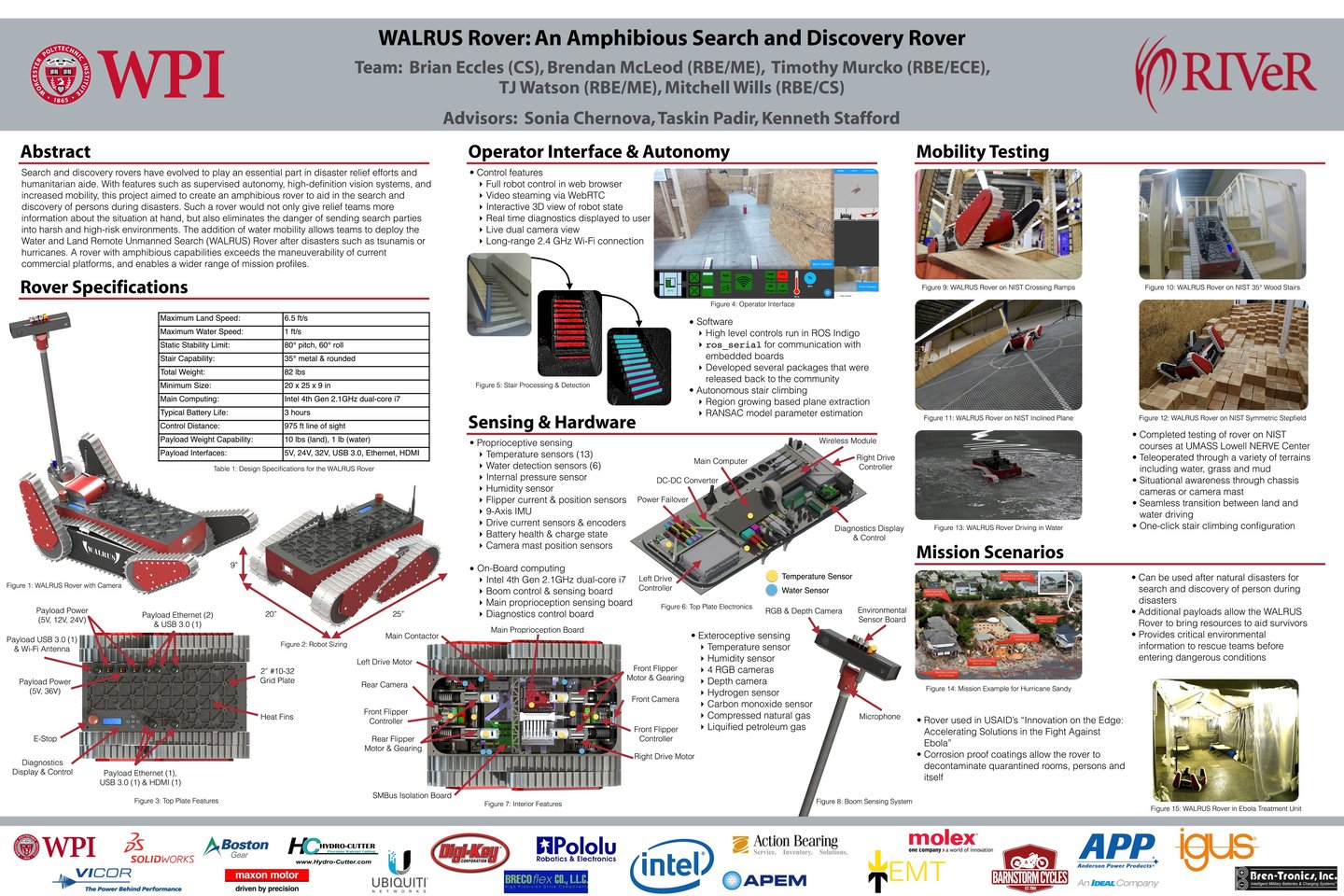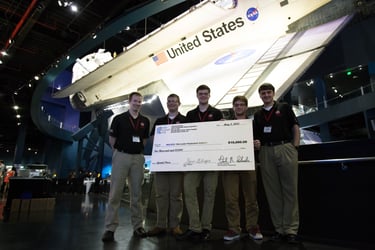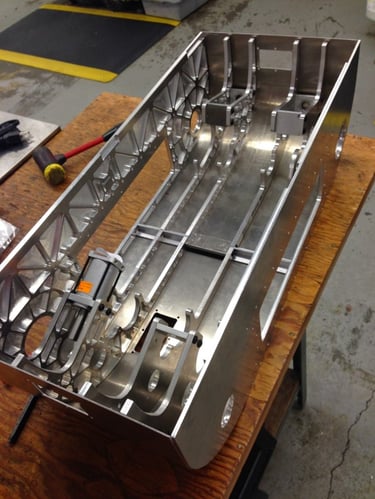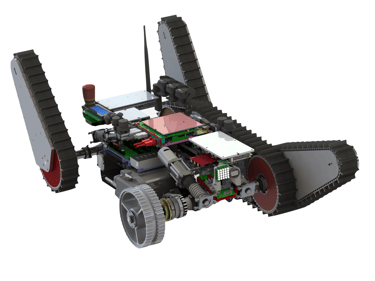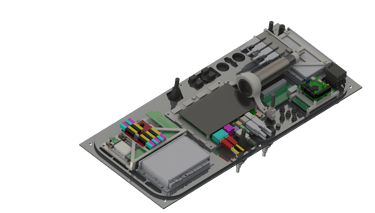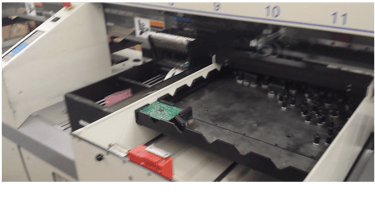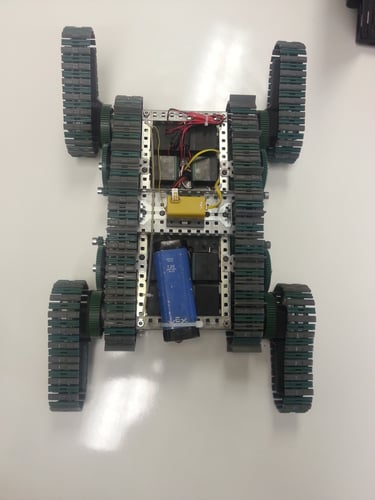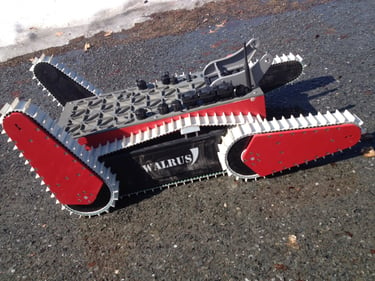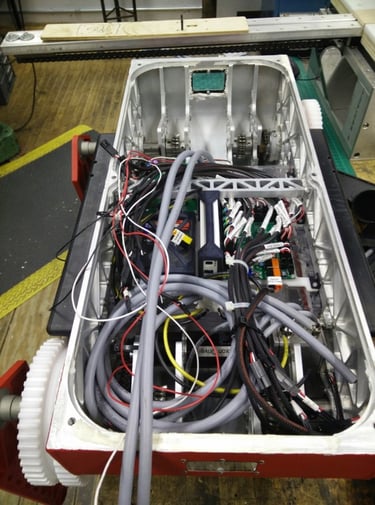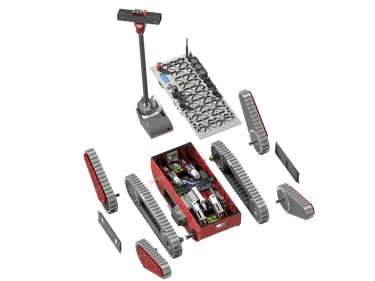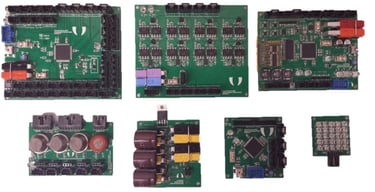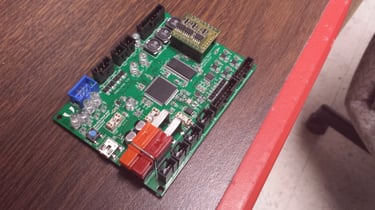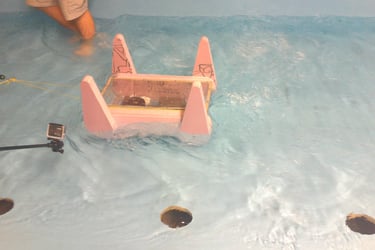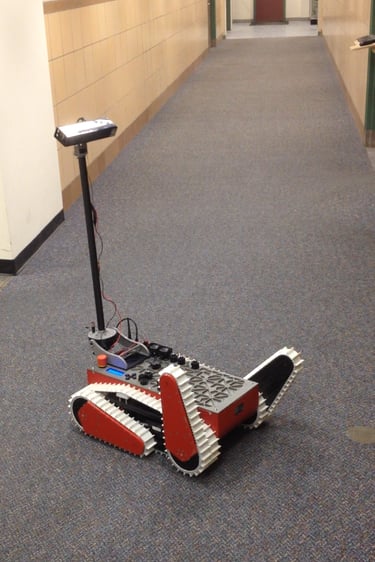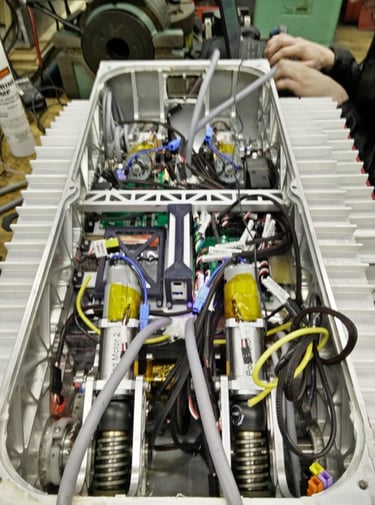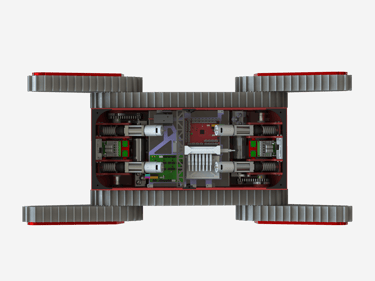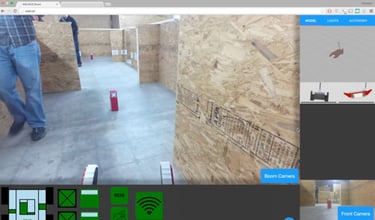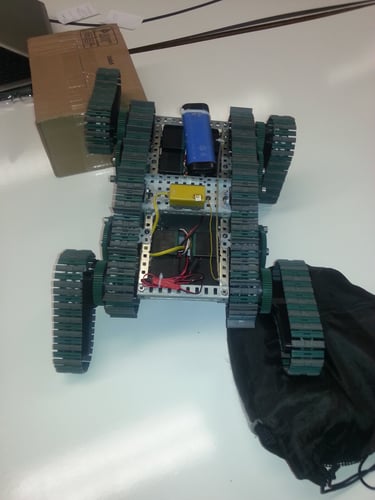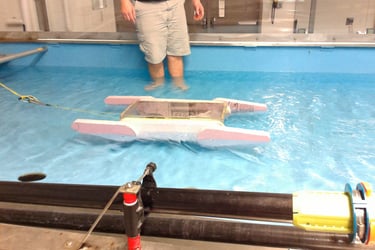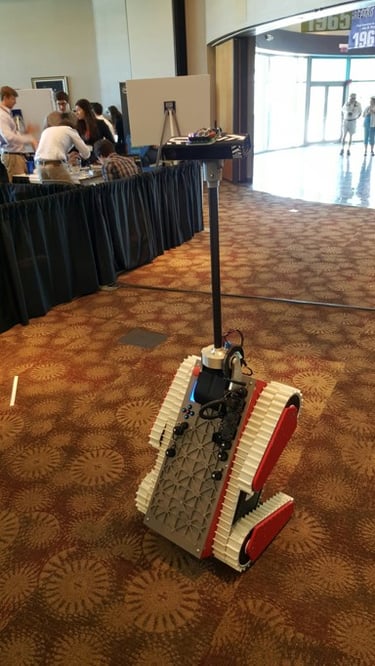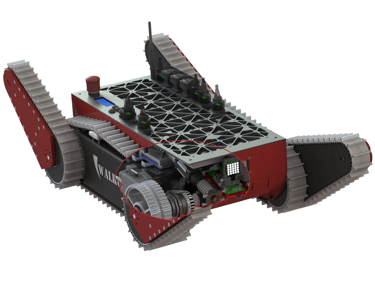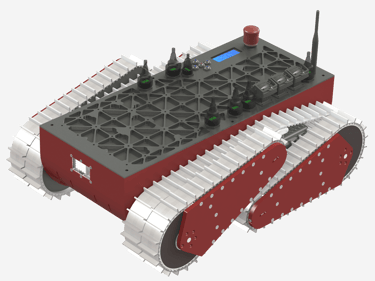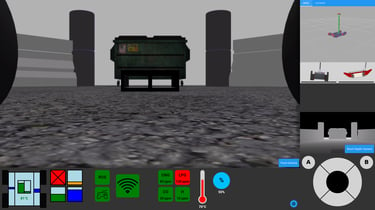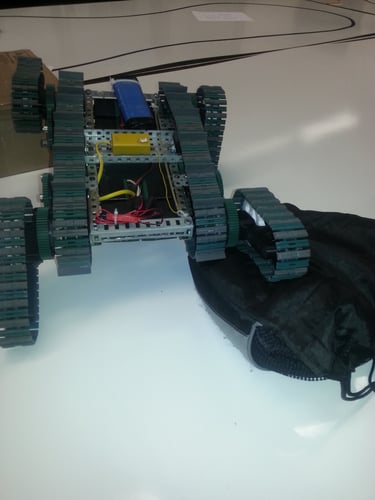WALRUS
August 2014 - May, 2015
The Water and Land Remote Unmanned Search (WALRUS) Rover was my senior design project at WPI. I was the sole electrical engineer on a team of five aiming to design, manufacture, and test a novel search and rescue solution within an academic year. Search and rescue robots are typically designed for a specific set of terrain - land, water, or air. We intended to bridge the gap by creating an amphibious rover. With flexible mechanical and electrical interfaces, WALRUS can be configured for a wide range of missions. This project was intense and comprehensive, meriting extensive documentation. Entire papers can be written on WALRUS (in fact, there are). This page provides a brief overview of our ambitious endeavor.
I would like to thank and give credit to the other members of the WALRUS team as this was by no means possible without everyone involved: Brian Eccles (CS), Brendan McLeod (RBE/ME), TJ Watson (RBE/ME), and Mitchell Wills (RBE/CS)
I would also like to thank our sponsors who are listed below in the technical details section for their generous donations of engineering products and manufacturing services
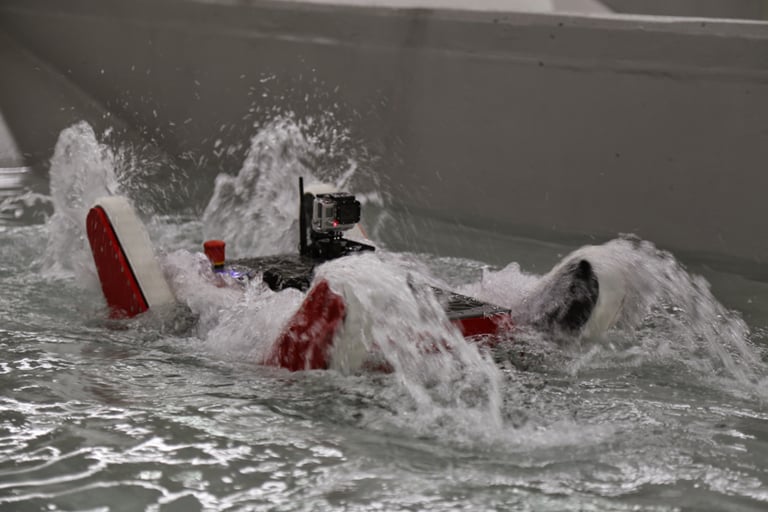
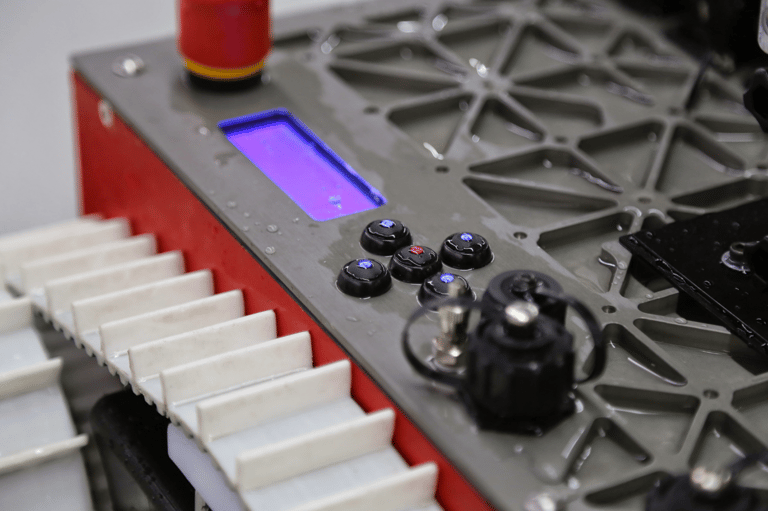
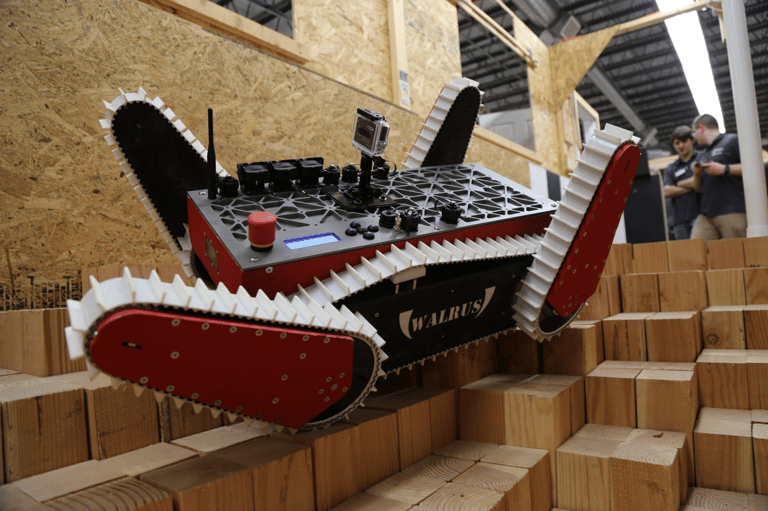
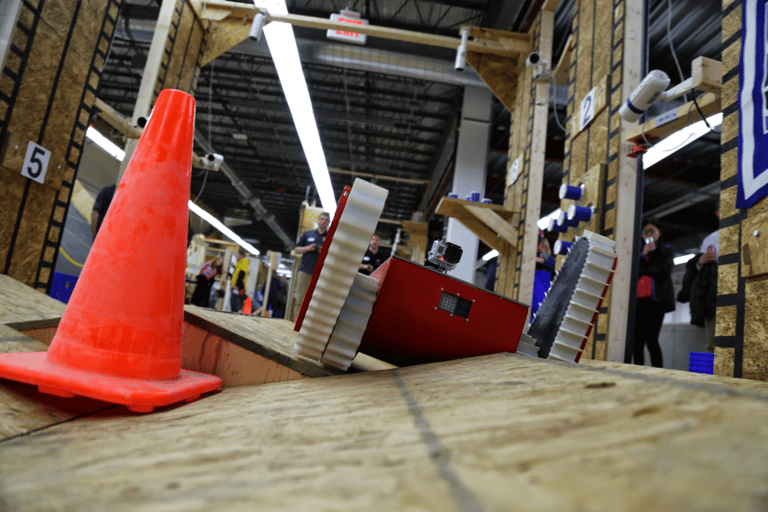
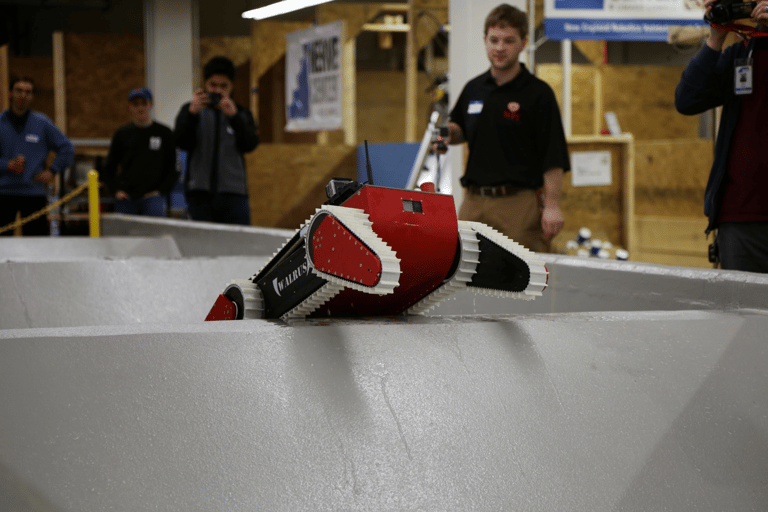
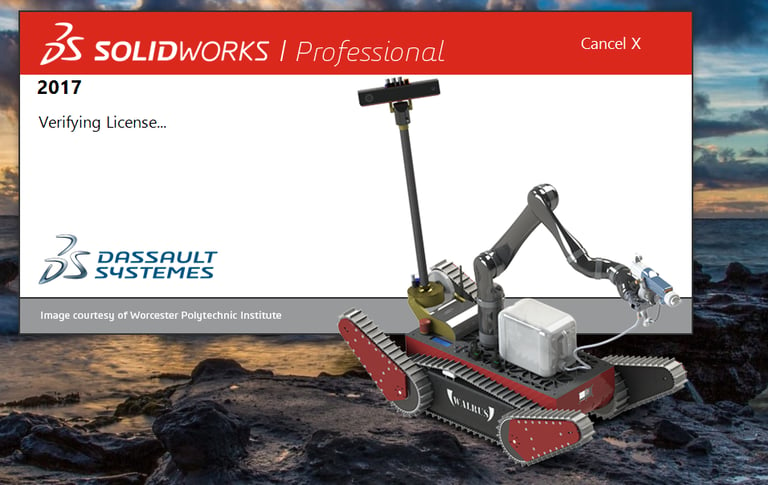
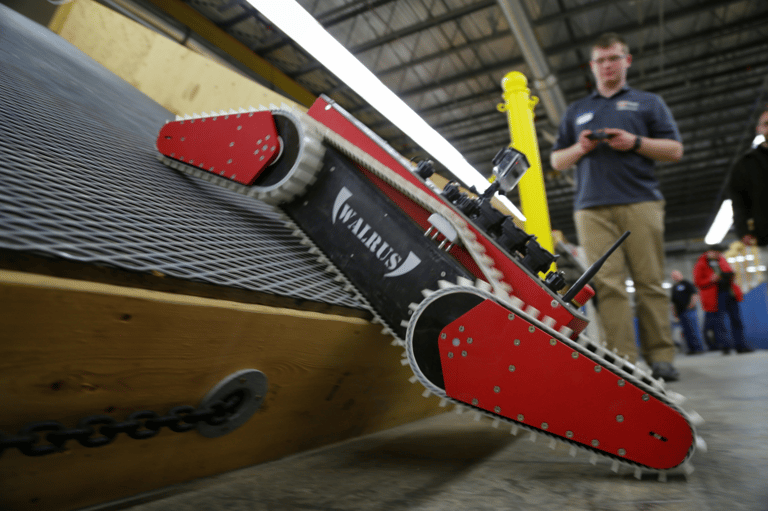
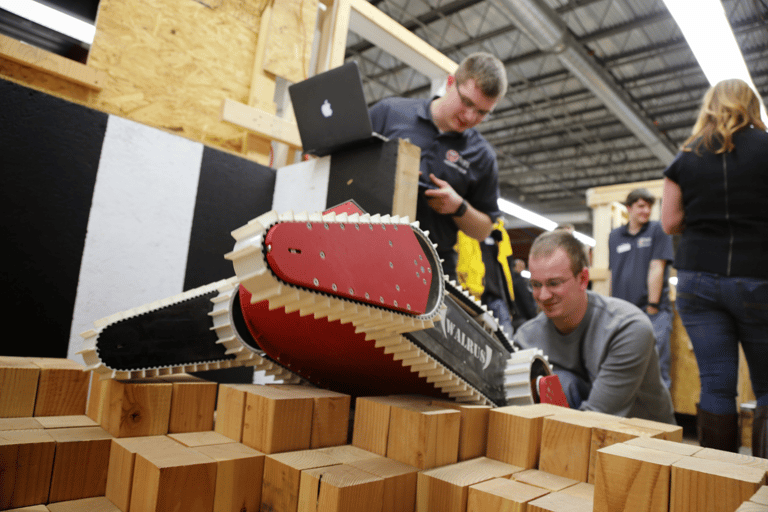
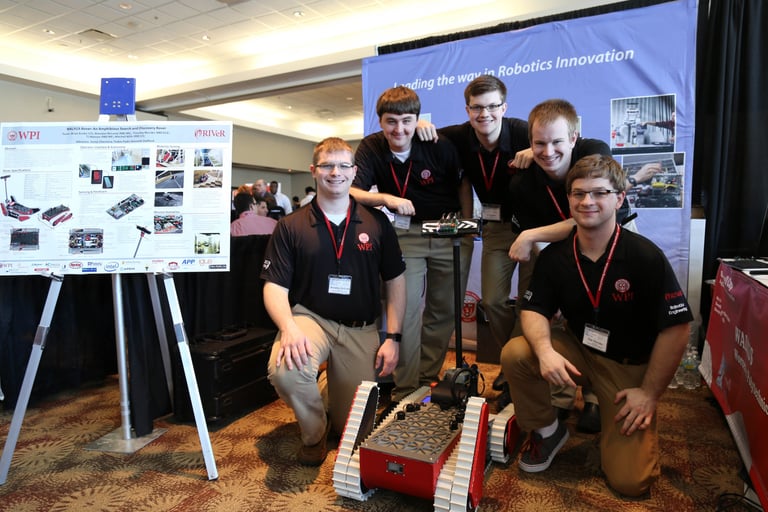










Technical Details
Competitions and Media:
Intel Cornell Cup: WPU Robots Win Top Prizes
Dassault Systems: Pioneering Engineering with Solidworks
WPI: Life Saving Robots and Technical Final Paper
YouTube: WALRUS Rover
My Roles and Responsibilities:
This project was a significant effort, with contributions from five team members. I want my specific role to be clear. My role as the sole electrical engineer (EE) involved custom circuit board design, electrical architecture design, specing out off the shelf equipment (things like radios, sensors, and motor controllers), and wire harness manufacturing. While I occasionally helped with software and mechanical tasks for fun, my primary focus was on EE. My bread and butter was the custom circuit board design portion. There are 7 unique custom circuit boards in the WALRUS rover that are used for motor control, power distribution, lighting, displays, and sensor monitoring. I designed and tested all of them.
Project Challenges and Lessons Learned:
WALRUS was a full time job on top of my already existent full time student responsibilities. The project presented both technical and non-technical challenges and lessons. While I had completed most of my college EE courses, I was far from an expert in circuit board design. Prior to WALRUS I had only designed 2 boards from scratch, and honestly only 1 of those boards worked. Jumping into this project head first was a big risk but it was the right choice. It pushed me far outside my comfort zone and provided me with what I would estimate to be over two years of industry experience, making my transition into the workforce smooth. Learning how to manage my time, cope with stress, and work efficiently were all valuable skills I picked up throughout the project.
A bit more on the nitty gritty technical side though. It's funny how perspective changes. At the time I thought I was completing high quality design. I thought I was the shit. Looking back 8 years later...wow, I did so much wrong. But that's ok, it is part of the process. I want to be honest. Here are 6 lessons I learned:
1. Dedicate ample time to meticulously consider your system architecture. This is your foundation. If you mess it up you are going to be really hurting. A flawed architecture can spell disaster, a common pitfall in hardware ventures. Remedying it late in the game might prove futile.
2. Keep electromagnetic interference at the forefront of your design considerations. It is an issue that will inevitably surface. Use resilient communication protocols and factor in packaging for shielding early on. Pay attention to the little details and get paranoid.
3. Learn how to enter the pencils down phase so you can properly test and iterate. It is always better to ship a product with 80% of the originally planned features that work 100% of the time, rather than ship a product with 100% of the planned features that only work 80% of the time.
4. Everything takes much longer than you think it will. It just does. Accept it and plan for it.
5. Data is your life blood. Every diagnostic, sensor, and monitoring feature is worthwhile. When failures happen you will use sensor data in ways you may not have imagined before. Do not overlook this.
6. Generally speaking, what you get out of your college experience is what you put in.
